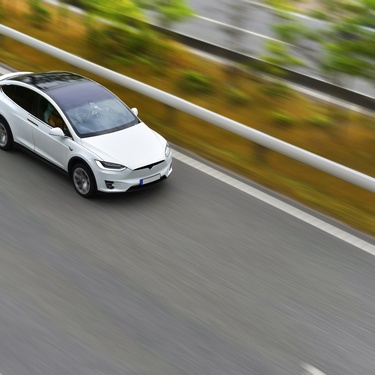
Electric vehicles (EVs) are quickly becoming a common sight on our roads. With more models available than ever before, many drivers are considering making the switch from gas to electric. But before you trade in your traditional car, it’s important to understand what owning an EV truly involves. This guide covers what consumers should know about buying an electric car before visiting the dealership.
EV Range and Charging
One of the first and most common questions people ask about EVs is, “How far can it go on a single charge?” The answer varies significantly between models. Some EVs offer a range of around 150 miles, while others can travel over 300 miles. Think about your daily commute and typical driving habits to determine the range that best suits your needs.
You also need a plan for charging. There are three main types of charging:
- Level 1: This is the slowest option, using a standard 120-volt household outlet. It can take over 24 hours to fully charge an EV, making it best for overnight top-ups.
- Level 2: This method uses a 240-volt outlet, similar to what an electric dryer uses. You can install a Level 2 charger at home, which significantly cuts down charging time, typically to between four and eight hours for a full charge. Many public charging stations also offer Level 2 charging.
- DC Fast Charging: This is the quickest way to power up your EV, often adding over 100 miles of range in about 30 minutes. You can find these chargers at public stations, usually along major highways.
Battery Health and Lifespan
An EV’s battery is its most expensive component, so understanding its health is vital. Battery capacity naturally degrades over time. Factors like extreme temperatures, frequent fast charging, and driving habits can accelerate this process. When looking at a used EV, ask for a battery health report to see its current capacity.
Most manufacturers offer a warranty on the battery, which typically lasts for eight years or 100,000 miles. This warranty usually covers replacement if the battery’s capacity drops below a certain percentage, often 70 percent.
Costs and Incentives
While EVs often have a higher initial purchase price than comparable gasoline cars, various incentives can lower the cost. Federal tax credits, state rebates, and local programs can save you thousands of dollars. Be sure to research the incentives available in your area, as some existing credits are temporary.
Additionally, EVs are cheaper to own over time. Electricity is generally less expensive than gasoline, and EVs require less maintenance since they don’t need oil changes or have as many moving parts.
Safety Features
EVs come with the same standard safety features as modern cars, but they also have unique considerations. Their heavy battery packs give them a low center of gravity, which can reduce the risk of rollovers.
In case of a rare battery fire, it’s wise for owners to consider buying an electric vehicle fire blanket for added peace of mind. Familiarize yourself with the car’s emergency procedures, such as how to disconnect the power in an accident.
Switching to an electric vehicle is a great move for some people, offering long-term savings and a smaller environmental footprint. But before you fully buy into the electric vehicle movement, you must weigh these consumer considerations carefully with your lifestyle and budget factors.
Bio: Casey is a passionate copyeditor highly motivated to provide compelling SEO content in the digital marketing space. Her expertise includes a vast range of industries from highly technical, consumer, and lifestyle-based, with an emphasis on attention to detail and readability.




















